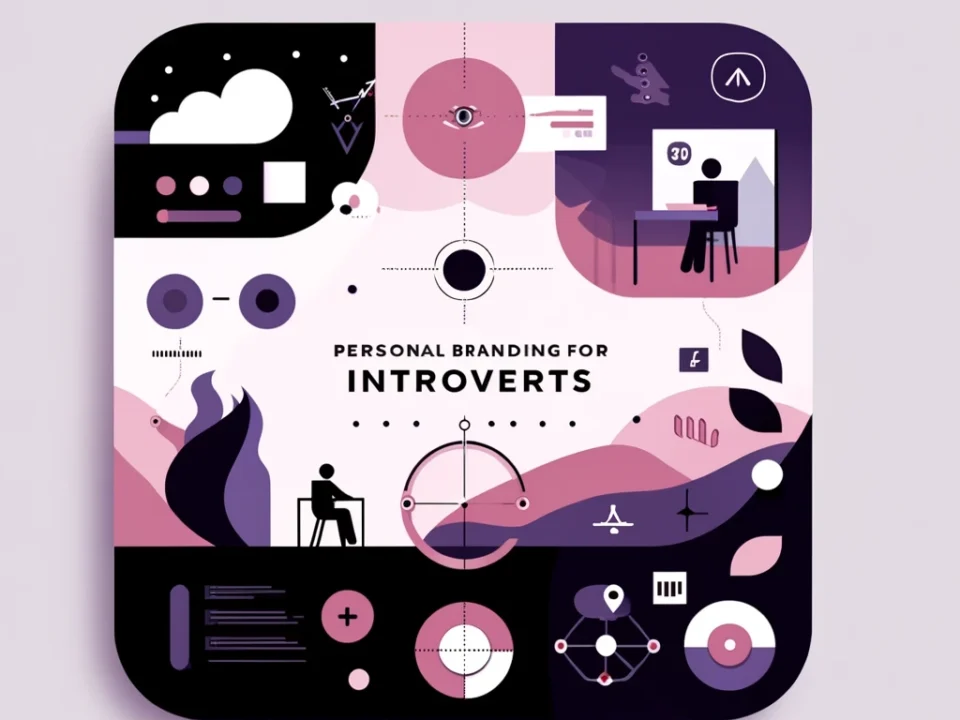Are you familiar with Warren Buffet, Ariana Huffington, Elon Musk, or Richard Branson? You, of course, do! They have billions of dollars in net worth, and their businesses are world-class. Is this, however, the only reason you feel linked to them?
Their own brand gave them the opportunity to enter the public eye. They share leadership wisdom, beliefs, vision, and secrets. Their brands gained texture, character, and public attitudes, allowing them to connect with the masses and seize previously unattainable chances.
This demonstrates that, whether you are a CEO, a leader, or have just started your career, believing that “my work will speak for me” is no longer beneficial. The epidemic altered “business models” as well as “how businesses are done.” And, since everyone is focusing on increasing transparency, relationships, and communities, it’s past time for you to jump on board the influence train.
As previously said, leaders are not immune to the shifting digital ecology. As a result, strengthening their brand and reputation is becoming a requirement. A leader who creates a personal brand becomes someone in whom everyone has faith.
If you’re asking why it’s even necessary for your leaders, consider the following statement.
Simply said, it raises awareness of who you are, what you stand for, and why others should follow you. Your brand will deliver great outcomes if it reflects that you make a positive difference.
Let’s start with this question…
What exactly is your own brand?
Examine your job route. You understand that your leadership footprint is not composed of sand. It is the substantial that makes an impression. Finding your voice as a leader allows you to communicate your overall expression more effectively. That is how having a personal brand may benefit you.
Many studies have found that leaders must develop a leadership brand. It will help you distinguish yourself from ineffective leaders. This will assist you in cutting through the clutter and focusing all of your energy on things that are important to you.
For example, because of the pandemic, everyone was obliged to work from home. However, leaders who took the initiative to express what was important, their vision, and their future potential were favourably received by their team members. Let us not forget that “leadership isn’t just about leading in the workplace.” It’s about making a difference and optimising your leadership potential by demonstrating what you’ve accomplished and what you intend to pursue in these difficult times.”
In the midst of business reorganisation and reconsideration, it’s time for your executives to understand:
- Who exactly are they?
- What exactly do they do?
- What do they hope to achieve?
Leaders that understand how to encourage others become a part of the success, even if the basis is shaky. Digital transformation is here to stay, and if you want to reap the benefits, it’s essential to boost the value of your leaders, which will boost employer and corporate brands.
Collaborate with your personal, employer, and corporate brands
Collaboration is essential. It will assist you in achieving more visible and meaningful success as a brand. This is why you must push your leaders to create a personal brand that, when paired with the branding of your company, produces greater results. When combined with savvy personal branding, it will increase your value. This is what three different workplace branding look like:
While they appear to have opposing agendas, their overlapping visions and audiences make them a unique mix for navigating the issues of the “future of work.”
But, in order to do so, the first step is to grasp a leader’s personal branding.
- A leader’s personal branding
- What makes your leader famous?
- What does the leader stand for?
- What does your leader represent?
To establish their voice as a leader, your leaders must first identify their beliefs, then use their influence to create content that opens the door to opportunities. It’s all about how they develop a personal brand as a leader who can communicate effectively.
However, your executives must grasp how to develop “personal branding.” Let’s start with the fundamentals.
It’s not all about you:
If you think personal branding is all about you, you’re mistaken. It all comes down to the relationships you have with your clients, customers, colleagues, team, and community. It is about your message connecting you with many people both inside and outside your organisation.
It’s about exhibiting self-assurance:
Communication is essential in developing a strong presence. However, excluding expressions such as writing and listening abilities prevents you from connecting with a bigger audience. Personal branding enables you to achieve exactly that. It will improve your capacity to articulate yourself and position you as the leader you are.
The goal is to figure out what kind of leader you are. That is how your leaders will be able to fit into your leadership style. If you still believe it will be a waste of effort for your leaders to create one, consider the following distinction.
Not only that, but your leaders can produce the following while developing a personal brand:
- My personal brand will represent that I am communicative and eager to learn from advice and critique.
- My personal brand will inspire and instill confidence in my audience, as well as reflect my values, outcomes, and influence.
- My personal brand will demonstrate my heritage, my vision, and the efforts I take to make things a reality.
- My personal brand will reflect my personality and how I react in stressful situations.
Your leader’s personal brand will serve as their footprint, allowing them to create an impression on others. It will have an influence on them, their organisation, and their bottom line. The following will assist you:
- Find out what your important leadership values are.
- Create a compelling vision to accomplish the desired results.
- Build trust and credibility in your relationships to exert influence.
Personal Branding for Aspiring Leaders
While everyone is talking about leadership roles as a way to establish a personal brand, your potential leaders should do the same. Paying attention to your employees’ personnel will assist them advance to greater responsibilities if they have the capability and wish to make it reachable.
This is how organisational leaders will identify the personalities, mindsets, and next big players needed to keep the succession pipeline afloat. Organisations must understand that merely working behind the scenes will not help them grow into leadership roles in today’s world. The more smarter brands you have throughout your organisation, the better your business and revenue will be.
If businesses believe that strong personal brands can lead to turnover, here are some reasons why you should encourage your staff to develop a personal brand.
Why should organisations encourage leaders to develop a personal brand?
Personal branding leaders indirectly help with employer organisation:
When a leader talks about your organisation, projects, and how he is a part of them, it not only reinforces his competencies but also protects your brand in a positive way. It will help you improve your corporate brand and attract potential employees in the audience. It’s a clear victory for all forms of branding. Remember that trends and breakthroughs uncovered by such superstars or leaders will boost corporate innovation and the bottom line.
Personal branding-friendly leaders attract talent:
When your future leaders and individuals in leadership roles begin providing insights into operations, culture, and initiatives, it acts as employer branding, attracting talent to your organisation. Such content formats begin to operate as information nuggets, allowing job candidates to positively approach their target business.
Leaders who support personal branding are viewed favourably:
Everyone understands the importance of personal development. And if leaders discuss personal branding, development, professional advancement, advancing into leadership roles, and organisational projects openly. They will be content and happier because you support the habit of making constructive information available to them at all times, and they will be able to concentrate on their own growth while the organisation grows. As a result, it will decrease employee turnover while increasing employee happiness and productivity.
The management will be aware of “Who’s Who”:
Many times, your teams are unable to openly discuss their dreams, goals, and desires. You’re not sure if it’ll work with your vision. Personal branding, on the other hand, will help you better identify the skills of employees throughout a business. Instead of sending out robotic job descriptions, you will request a team member based on their interests.
Leaders and employees who post help to boost your marketing and recruitment efforts:
Employees who are prolific publishers will assist you in reflecting the goals, beliefs, and vision of your brand. It will benefit your marketing efforts whether they share blogs, technical papers, videos, or their personal thought process. Your leaders and staff will create a digital footprint that will bridge the gap between candidates and employees.
Leaders with a strong personal brand will bring in new clients:
Everyone wants to bring in new customers. When brands use traditional marketing methods, however, it becomes overwhelming. Organisations with strong personal brands online can utilise their network and portray their business as nimble and forward-thinking.
Personal branding, on the other hand, is more than just a tool for job seekers. It’s also necessary, in my opinion, to thrive in positions of leadership. Your brand influences how others see you, influencing the level of power and authority you transmit.
The correct personal brand can change your thinking (read more about the impact of mindset here), while also allowing you to develop valuable relationships with the people you manage.
Among the primary advantages are:
1. Distinction in a crowded marketplace
To open chances and leadership roles, you must distinguish yourself from other innovators in your field. There are many talented professionals in every area, but only a few great employment chances exist.
Creating a personal brand is how you set yourself out from your competitors. It allows you to highlight the leadership talents and characteristics that employers and peers respect the most.
You can find a “unique value proposition” by using your understanding of your sector and the core objectives and values of the people you wish to impact with your personal brand. In other words, the distinguishing feature that distinguishes you from other leaders.
In leadership roles, for example, you might display exceptional cultural intelligence and empathy, enhancing team collaboration and cooperation. You might also be an expert in promoting diversity, equity, and inclusion.
2. Improved Visibility and Recognition
Creating a strong personal brand emphasises your own talents and ideals. It’s a constant opportunity to call attention to your expertise.
To begin, developing a strong personal brand requires you to consider how you position yourself in front of others both online and offline. You should update your LinkedIn and social media profiles to reflect your most recent recommendations and achievements.
Rethinking how you present yourself has an effect on how you are seen within your current organisation. Remember, it’s not just about getting seen; it’s about getting noticed for the right reasons.
A consistent, distinctive image that emphasises the essential elements of your personality and expertise ensures that people think of you first when they need someone with your particular abilities.
3. Greater Influence in Leadership Positions
Through inspiration, encouragement, and regular coaching, true leaders can actually affect the behaviours and behaviours of others. They promote a fundamental cultural transformation in their organisation rather than simply telling peers what to do.
Developing influence can be more difficult than gaining a promotion. You must persuade them to put their trust in your knowledge, experience, and intuition. Creating a professional personal brand is essential for establishing credibility and interacting with peers.
You’ll get the respect of your peers, and you’ll be better prepared to become a good change agent in your industry, encouraging those around you.
4. Networking and Relationship Development
Consider how you pass judgement on others. You most likely study not only how they show themselves, but also the individuals they associate with.
Whether you like it or not, the company you keep has an impact on your image. Surround yourself with recognised authority people in your field, and you’ll be perceived as more trustworthy and reliable. To create a favourable network, you must first become someone with whom people in your field want to be affiliated.
Here is where your personal brand comes into play. Sharing useful thoughts with peers, whether in person or online, establishes you as a valuable source of knowledge and insights.
As you grow your talents, awareness of your sector, and experience, you will naturally interact with others through social media channels, training courses, and events.
5. Adaptability and resilience
Leaders must continually manage their teams through complicated periods of transition and growth, which is naturally stressful.
Creating a personal brand can boost your resilience and ability to adapt to change in a variety of ways. For starters, it helps you to closely assess your leadership strengths and development areas. This means you may find areas for improvement while also gaining the confidence you need to overcome challenges like imposter syndrome.
Developing your brand also entails staying current with your industry and what important to the people around you.
This can assist you in determining the characteristics and talents you need to improve, such as emotional intelligence or communication and self-coaching skills.
Personal branding can also influence your thinking in this area, motivating you to commit to long-term learning and growth in order to uncover consistent advancement prospects, even in a difficult market.
Conclusion
Personal brand leadership is useful for everyone who is tired of faking it and is serious about making it. It is useful for anyone attempting to live an authentic, genuine life while providing authentic and genuine value to their clients and shareholders, whether they be employees, family members, or investors. Personal brand leadership is being able to be comfortable in your own skin and never having to memorise your lines because you live unscripted, relying on the lessons you’ve learned and the (what we call the 3 Es) education, experience, and expertise you’ve achieved.





